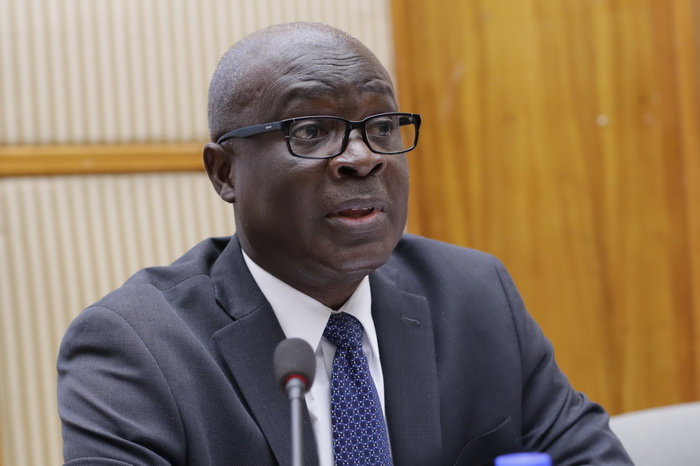
2018 Budget to be anchored on SDGs
The 2018 budget will be anchored on the Ghana specifics of the Sustainable Development Goals (SDGs), the Director of the Economic Resources Mobilisation - Multilateral Division of the Ministry of Finance, Mr Michael Ayensu, has hinted.
He said every single programme or activity highlighted in the budget would be mapped against the SDGs, saying, for example, that government’s policy on free SHS would be mapped against SDG Four, which focuses on achieving inclusive and equitable quality education for all.
Contributing to a panel discussion at a high-level dialogue on the SDGs in Accra on Monday, Mr Ayensu said the government’s Planting for Food and Jobs programme would be mapped against SDG Two, which focuses on zero hunger.
The dialogue was on the theme: “Achieving the SDGs: Innovating, mobilising and partnering for the implementation of the SDGs in Ghana”.
The dialogue, which was attended by a cross-section of society, including civil society organisations (CSOs), government representatives, students, the youth, the security services, as well as the United Nations Systems, formed part of activities to commemorate the 72nd UN Day.
Mr Ayensu said the Ministry of Finance had resolved to mobilise funds through every possible means to assist the government to implement the SDGs, adding that that would include the broadening of the tax net and the effective use of the resources mobilised.
He said the fact that President Nana Addo Dankwa Akufo-Addo was co-chair of the advocacy wing of the SDG showed how seriously the government took the SDGs.
CSO’s role
Madam Joyce Larnyoh, a member of the SDG Platform, who represented CSOs on the panel, stressed the need for the SDGs to be translated into the country’s 11 major languages.
“Because development is not meant for just a particular group of people, the SDGs should be translated into the local languages to make an individual who has the ability to read his or her local language also understand what the SDGs are about, ask questions and know how they will help with nation building,” she stressed.
She was also of the view that translating the SDGs into the local languages would help properly sensitise the public to the need for the goals to be achieved.
She urged the metropolitan, municipal and district assemblies (MMDAs) to incorporate the SDGs agenda into their plans to make people aware of what had been done and what was to be done.
Political will
The Chief Executive Officer (CEO) of the Private Enterprises Foundation (PEF), Nana Osei-Bonsu, said there was the need for political will and commitment on the part of the government to be able to implement the SDGs.
He said the SDGs were achievable, provided the task would be backed by the needed commitment, and called on all stakeholders to put in their best to enable the country to achieve the goals.
The Deputy Director of Environmental Policy at the National Development Planning Commission (NDPC), Dr Felix Addo-Yobo, called on all actors to unite towards the achievement of the SDGs.
Suggestion
For his part, an international relations analyst, Dr Vladmir Antwi-Danso, suggested that the NDPC should be an independent institution made up of qualified professionals and technocrats to insulate it from government’s interference.
He said the SDGs could not be achieved in the absence of good governance, peace and stability, as well as good financial standing of the country.
The UN Resident Coordinator, Ms Christine Evans-Klock, said Ghana stood a better chance of achieving the SDGs by 2030.
